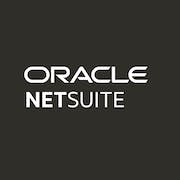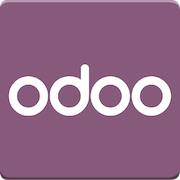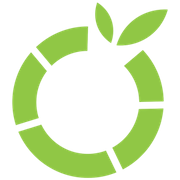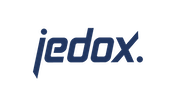Looking for the best accounting software? Our buyer's guide provides comprehensive reviews and comparisons of the top options available. Make an informed decision and streamline your finances today. Click here to learn more.
Choosing the best accounting technology can be a daunting task. With so many options available, it's critical to find a solution that meets your unique requirements. Whether you're looking for a cloud-based platform that provides real-time insights or an on-premise system with robust reporting capabilities, selecting the right software can streamline operations and drive business growth.
And it's a space that's continuing to grow with the accounting software market valued at $16.8 billion and expected to reach $28.1 billion in the next five years. It's no wonder that 65% of small businesses have adopted some form of accounting software.
In this buyer's guide, we'll explore the key factors to consider when evaluating accounting solutions and provide you with the information you need to make an informed decision. By the end of this guide, you'll have the knowledge and confidence to choose the best accounting solution for your organization.
What is accounting software?
Accounting software is a vital tool that simplifies the management of financial information for businesses. It's designed to replace the traditional method of manual bookkeeping, saving time, minimizing errors, and improving accuracy. Many businesses benefit immensely from accounting solutions, including startups, small enterprises and large corporations.
Accounting solutions are often used for:
- Generating invoices and processing payments
- Managing accounts payable and accounts receivable
- Tracking inventory and purchase orders
- Preparing financial statements and reports
- Generating tax reports and filing taxes
- Streamlining payroll management
- Analyzing financial data and making projections
There are five major types of accounting software:
- Billing and invoicing accounting technology that automates transactions and creates invoices quickly and efficiently.
- ERP accounting tools that have a broader scope and can integrate with other systems such as customer relationship management.
- Payroll accounting technology that specializes in managing employee salaries and compensations.
- Custom accounting technology that's tailored to fit a company's specific needs
- Spreadsheet software that uses spreadsheets to manage financial data. This type of software is often used by small businesses and can be scaled up to fit into enterprise-level software solutions.
Accounting solutions are revolutionary tools that make the management of financial information more efficient and straightforward. With its ability to automate accounting tasks, improve accuracy, and provide real-time data analysis, businesses can benefit immensely from this technology to improve their financial management, save time and be more productive.
What is accounts receivable software?
Accounts receivable software is an essential tool for businesses to manage their finances. It allows companies to track and manage customer payments, issue invoices, and follow up on overdue payments. This software automates the invoicing and payment tracking process, streamlining operations and enabling companies to focus on core business functions.
Accounts receivable software is crucial for companies that need to manage their cash flow and ensure they get paid promptly and accurately. Accounts receivable software can help with:
- Invoicing: It automates the invoicing process, allowing companies to create and send invoices to their customers quickly and effortlessly.
- Payment Tracking: It tracks customer payments, providing businesses with real-time information on outstanding payments and overdue accounts.
- Reminders and Collections: It sends reminders to customers for overdue payments and helps businesses to manage the collections process.
- Analytics and Reporting: It provides companies with insights into their cash flow and financial health, allowing them to make informed decisions.
Accounts receivable software is especially beneficial for companies that manage a high volume of transactions or have multiple clients with varying payment terms. It is commonly used by businesses such as law firms, consulting firms, healthcare providers, and retail businesses, among others.
What is accounts payable software?
Accounts payable software assists businesses in managing their finances by automating their accounts payable processes. This software allows companies to streamline their accounts payable workflows, from issuing purchase orders to processing vendor invoices and making payments. Utilizing accounts payable software significantly reduces errors, saves time, and improves the accuracy of financial records.
Here are some common use cases of accounts payable software:
- Simplifies the tracking of financial transactions, expenses, and payments
- Reduces the risks of fraud, duplicate invoicing, and late payments
- Automates the accounts payable process, ensuring timely, accurate, and efficient payments to vendors
- Enhances the visibility and control over cash flow management
- Generates financial reports, providing insights into the company's financial health
Accounts payable software is suitable for companies of all sizes that need to manage vendor payments and expenses. Small businesses can benefit from automating their accounts payable process, streamlining manual tasks, and reducing errors. Medium to large-sized companies benefit from the automation of high-volume transactions, reducing processing times and enhancing control over cash flow management.
What are the benefits of adopting accounting software?
In the world of modern business, it's essential to have a reliable system in place to manage business finances. That's where accounting software comes in – it's a powerful tool that can help to keep track of a company's finances, optimize processes, and make informed decisions. Here are some of the main benefits of using accounting software:
- Accurate financial reporting: With the right accounting software system, you can generate accurate financial reports quickly and easily. This information is vital for making informed business decisions and ensuring that your company stays compliant.
- Streamline financial processes: It can help automate many of your financial processes, reducing the time spent on bookkeeping tasks, and freeing up your staff to focus on more strategic work.
- Better cash flow management: Cash flow management is crucial for the survival of any business and accounting software can help you monitor your cash flow, generate projections, and identify areas where you may be able to improve cash flow.
- Increased efficiency: It can help reduce the risk of errors and improve the overall efficiency of the business.
- Improved collaboration: You can easily share financial information with your team, enabling better collaboration and decision-making.
- Lower costs: You can help reduce costs associated with processing payments, such as staff time, paper-based invoices, and printing and postage costs.
- Enhanced security: You can have better control over invoices and payment data and helps reduce the risk of fraud, errors and data breaches that can occur with manual invoicing and payment processing.
- Improved supplier relationships: By improving the speed and accuracy of payments, businesses can enhance their relationships with suppliers, which can lead to better pricing and other benefits.
- Better customer service: With automated reminders, your customers are prompted to make payments, reducing the chances of disputes, increasing customer satisfaction, and strengthening customer relationships.
The right accounting platform can help you manage your finances more effectively, reducing errors, improving efficiency, and enabling better decision-making.
14 key features of accounting software
Accounting platforms are a vital tool for any business that wants to streamline its financial processes. With an accounting program in place, bookkeeping becomes easier, faster, and more accurate. The software automates many repetitive and time-consuming tasks, enabling businesses to focus on other important aspects. Here are ten common features you need when choosing a new accounting software:
-
Invoicing
You want a platform that makes it easy to create and send custom invoices to clients. You'll need to be able to customize templates with your company logo, payment terms, and other details, and generate automated payment reminders and alerts.
Invoice automation is a great key feature, making your invoicing process more efficient and accurate. You can schedule invoices to be sent automatically at regular intervals, and customize them to include your branding and payment terms.
-
Expense management
Consider software that allows you to manage and track expenses efficiently by providing tools to record credit card expenses, track receipts, and categorize expenses for tax purposes.
-
Payment tracking
Being able to track payments in real-time can help you stay on top of your cash flow and avoid any late payments. You can also set up alerts to remind customers about upcoming payments and follow up on overdue invoices.
-
Payment processing
Payment processing capabilities allows you to accept payments online through credit cards, debit cards, or other payment methods which can help you get paid faster and reduce the risk of fraud or errors.
-
Bank reconciliation
With the right software, you can reconcile bank transactions and bank statements quickly and easily, reducing errors and improving accuracy.
-
Payment approvals
Ideally you want software that will enable you to set up workflows for payment approvals, ensuring that all payments are properly authorized, therefore reducing the risk of fraud and other financial irregularities.
-
Financial reporting
You'll need to be able to generate financial statements, including balance sheets, income statements, and cash flow statements. This information is useful for decision-making, tax reporting, and investor relations. You should be able to track metrics like revenue, outstanding balances, and aging reports to make informed decisions about your cash flow and future investments.
-
Inventory management
You'll also want to track inventory levels, forecasting, and help with order management. This allows the business to keep track of inventory levels, reorder points, and sales patterns.
-
Payroll management
With accounting software, managing payroll becomes much simpler as it can calculate taxes, commissions, deductions, and other employee-specific data.
-
Budgeting
It should be able to help you manage your budget with features like forecasting, analyzing financial statements and data, and reporting.
-
Data security and compliance
Most accounting software ensures data security through encryption and regular backups. The right software can also help make sure you're compliant with internal financial policies, external regulations, and other financial standards. It can provide warning alerts, ensure approval workflows, and an automatic audit trail to guarantee all transactions are correctly documented.
-
Integrations
It also needs to seamlessly integrate with other business software tools like ecommerce storefronts, and inventory tracking tools to provide a holistic solution.
-
Mobile access
Cloud-based accounting software allows access from anywhere and anytime on any device connected to the internet.
-
Multi-currency support
If you do business with customers around the world, a multi-currency feature is essential. It allows you to create and send invoices in different currencies, making it easier for your customers to pay you and for you to manage your finances across borders.
What to consider when assessing accounting software solutions?
Business accounting software is a crucial tool for organizations, providing a variety of functions such as bookkeeping, financial analysis, and tax preparation. However, choosing the right software can be a daunting task with many factors to consider, but by narrowing down your options and carefully assessing your needs, you can find the perfect fit for your business.
The first thing to consider is the size and complexity of your business. Small businesses with basic financial needs can benefit from simpler software with a lower price point, whereas larger businesses with more complex financial requirements may require more advanced software with sophisticated features.
Another crucial factor to consider is its integration capabilities. Many businesses utilize multiple software applications, such as inventory management software, CRM software, and ecommerce platforms. It's important to ensure that your accounting software can integrate seamlessly with these other systems to avoid manual data entry and reduce the risk of errors.
The level of support and training offered by the software provider is another important consideration. While some businesses may have an experienced accounting team in-house, others may require more assistance. Choose a provider that offers comprehensive training and support to ensure that your team can efficiently use the software and get the most out of its features.
Data security is also critical when it comes to accounting software. A financial data breach can be devastating to your business and its reputation. Make sure the software takes appropriate measures to secure your data, such as encryption and backup procedures.
Lastly, consider the pricing structure of the software. Many providers offer monthly subscriptions, while others charge a one-time fee or require an annual commitment. Make sure to choose a pricing model that fits your budget and ensures that you get the most value for your investment.
What are the biggest trends in the accounting software space?
In 2024 and beyond, this type of software is set to transform the accounting industry. With the adoption of cloud-based accounting platforms, businesses can experience greater flexibility and sustainability while reducing costs and streamlining processes.
Automation software is eliminating manual tasks, enabling accounting teams to work with greater efficiency and accuracy, while the rise of more integrated systems is improving data connectivity within organizations and enhancing overall efficiency. Additionally, real-time reporting features are providing instant access to financial data, leading to better decision-making.
Incorporating more advanced security measures and embracing artificial intelligence and machine learning is becoming a necessity to secure organizational financial information in an era of data breaches. With the emergence of mobile accounting solutions, finance professionals can access and monitor finances in real-time, regardless of location.
As accounting software continues to evolve, it's imperative for professionals in the industry to keep track of the latest trends and adopt these technologies to stay ahead of the curve.






